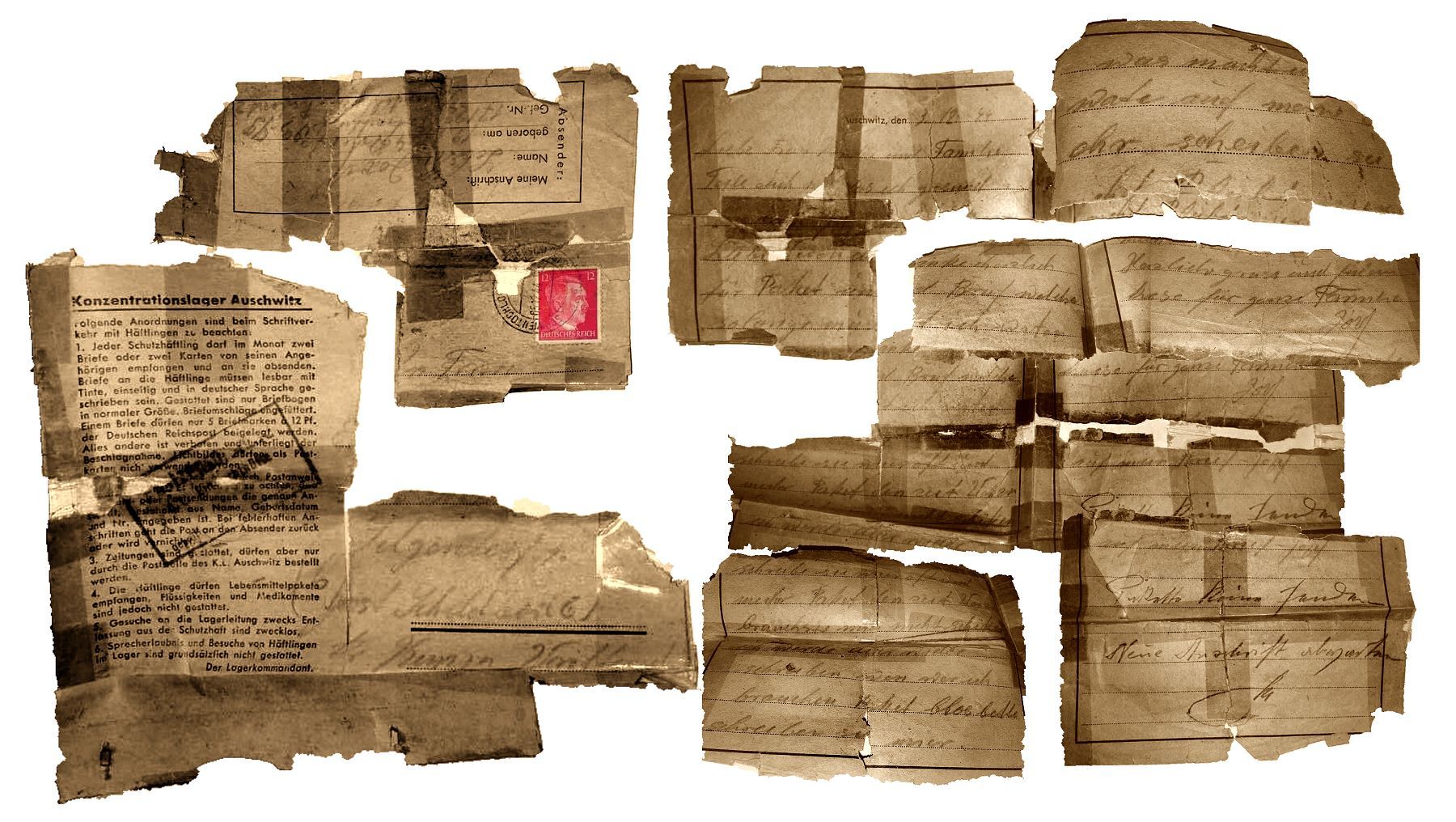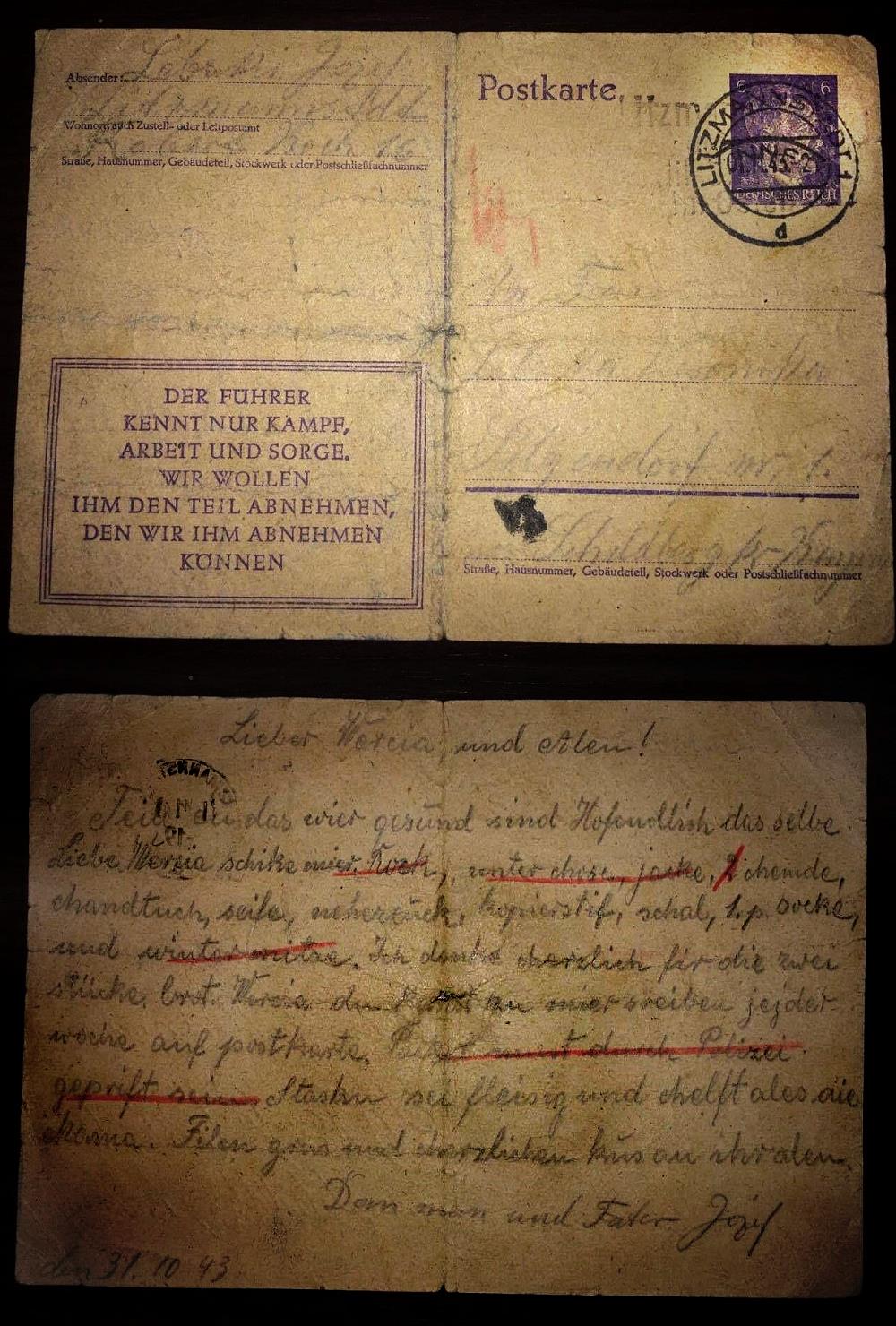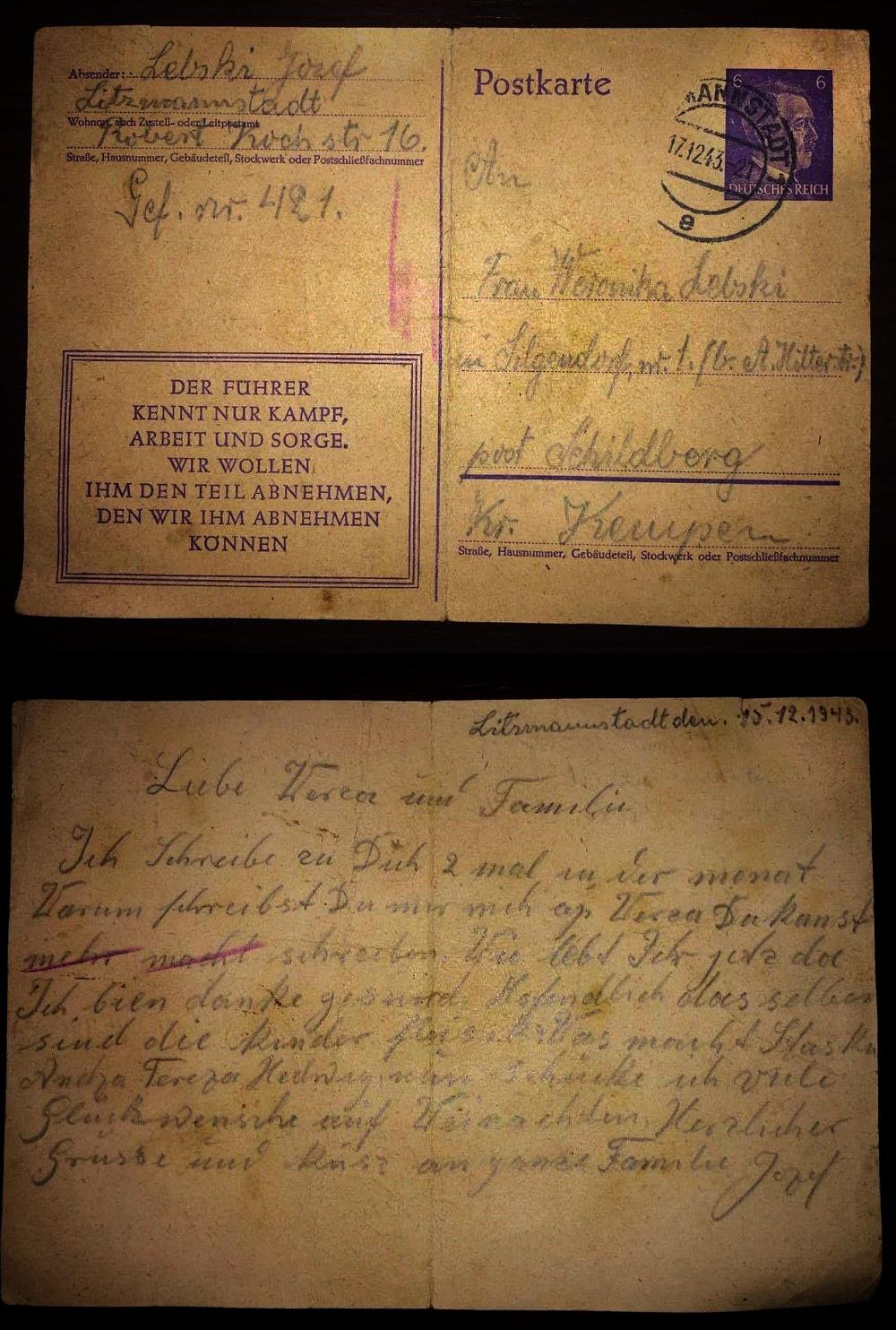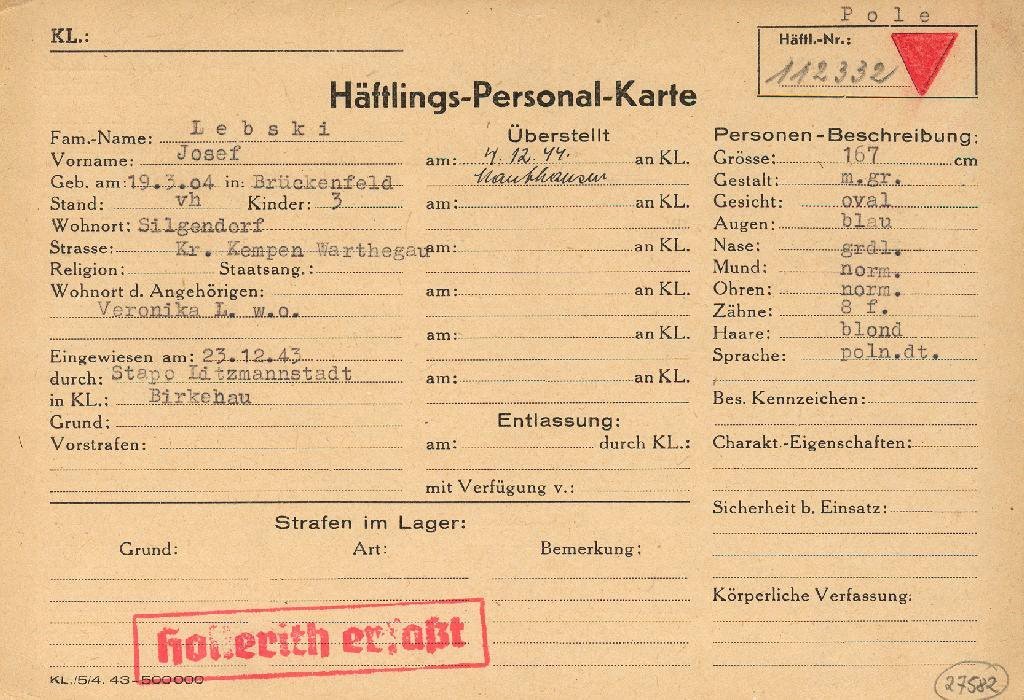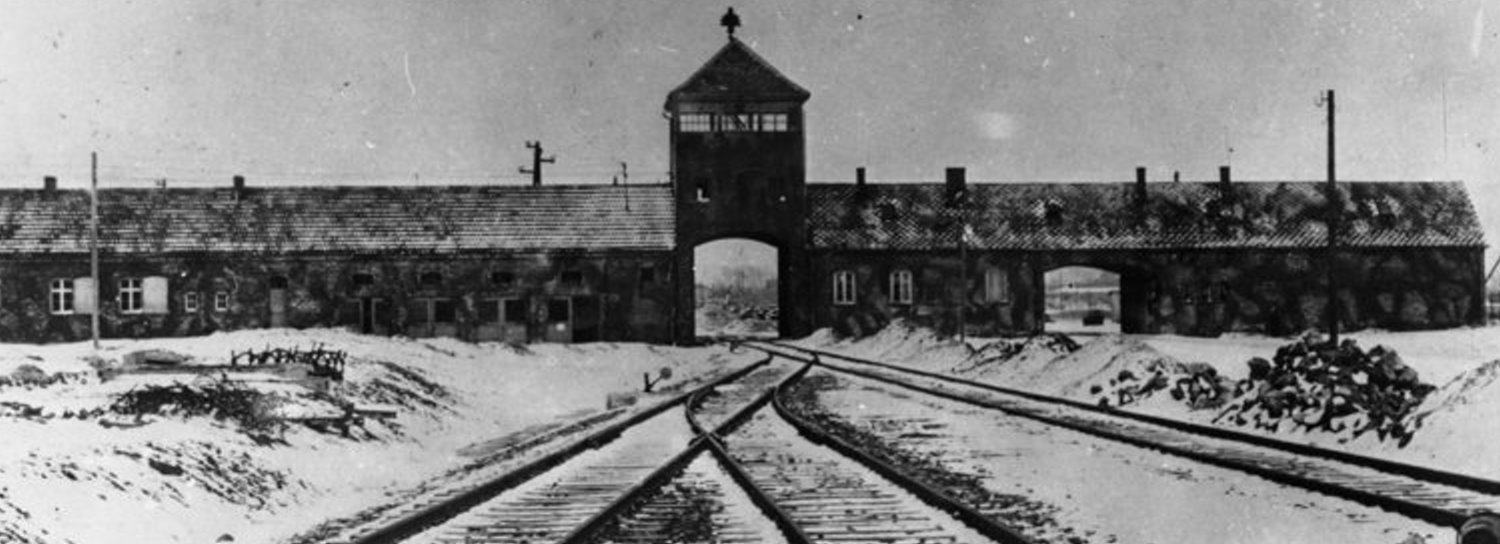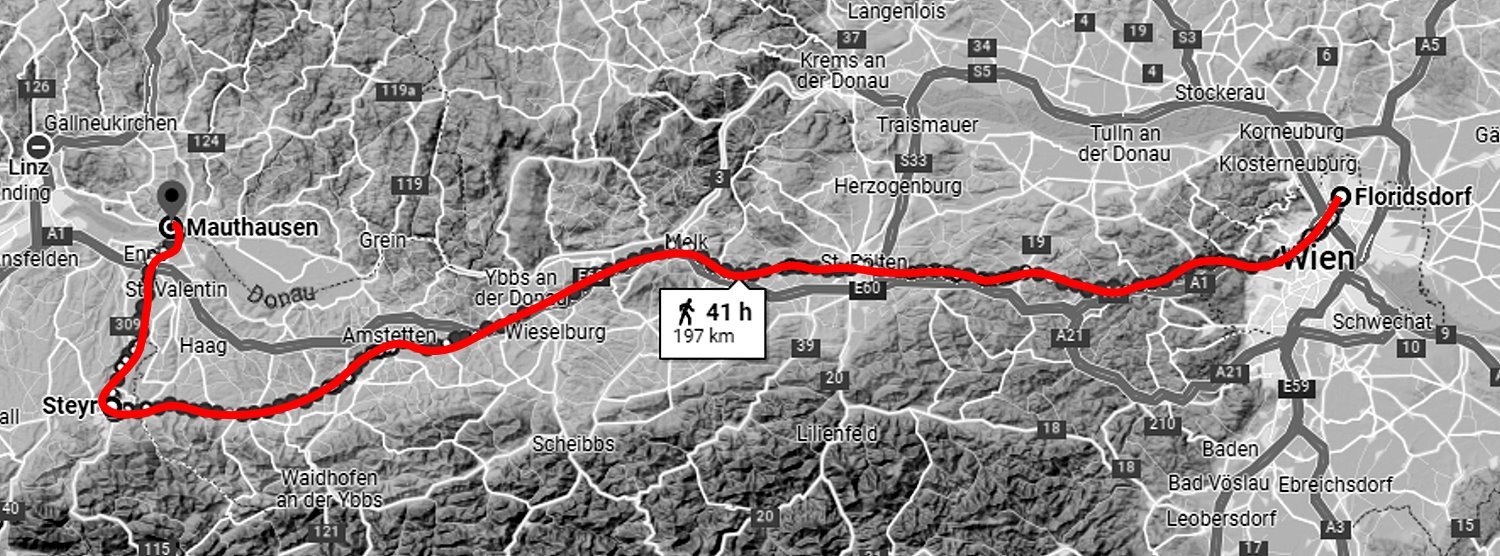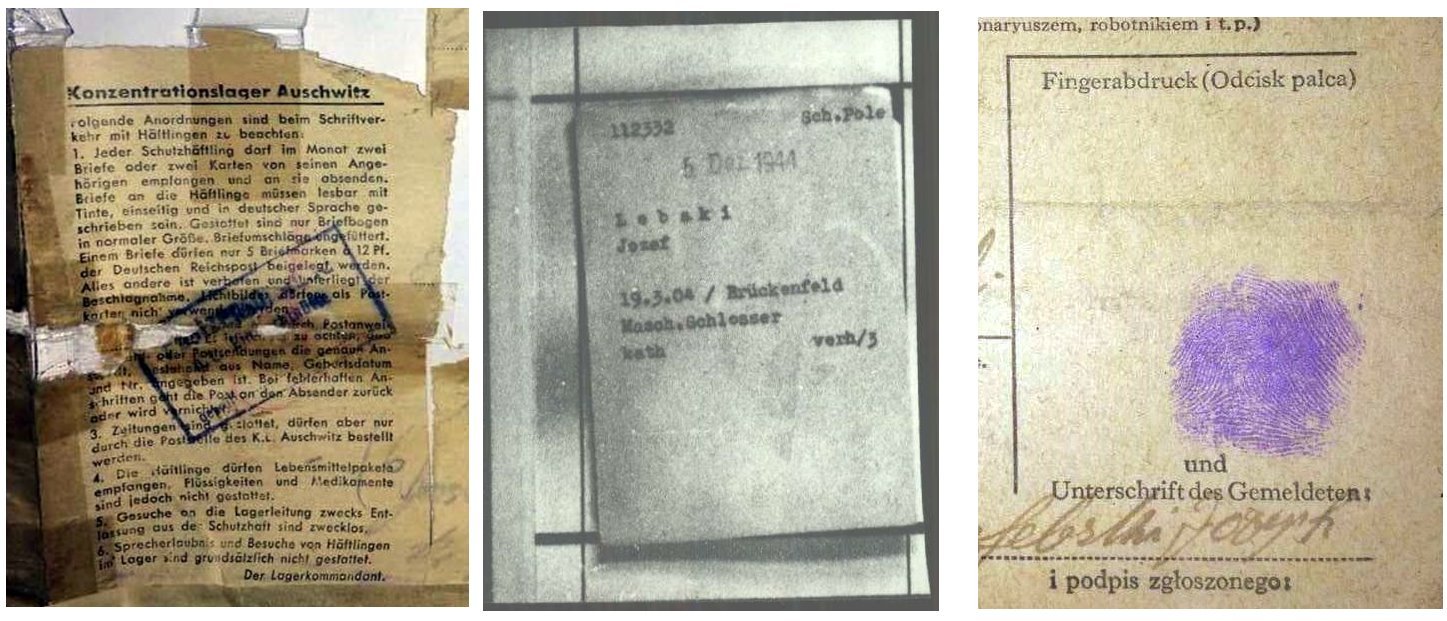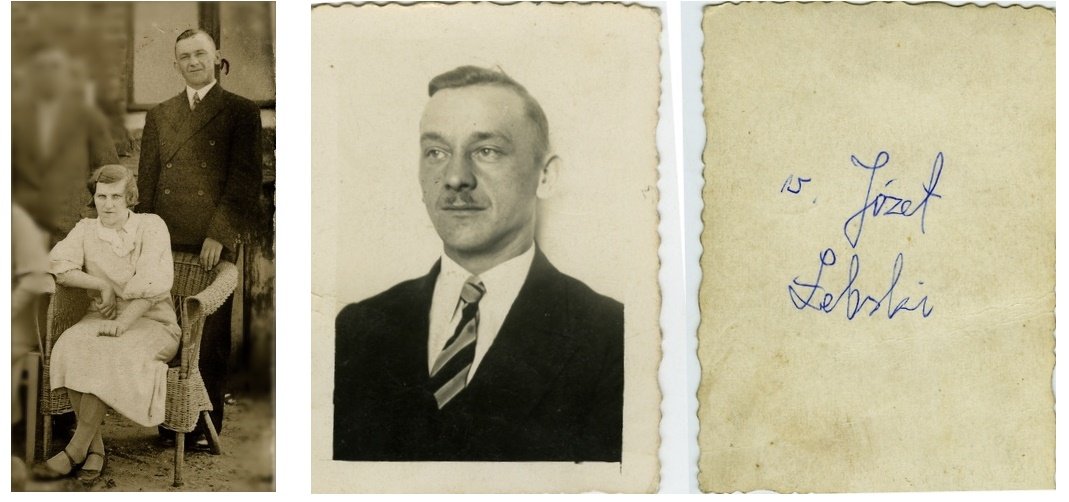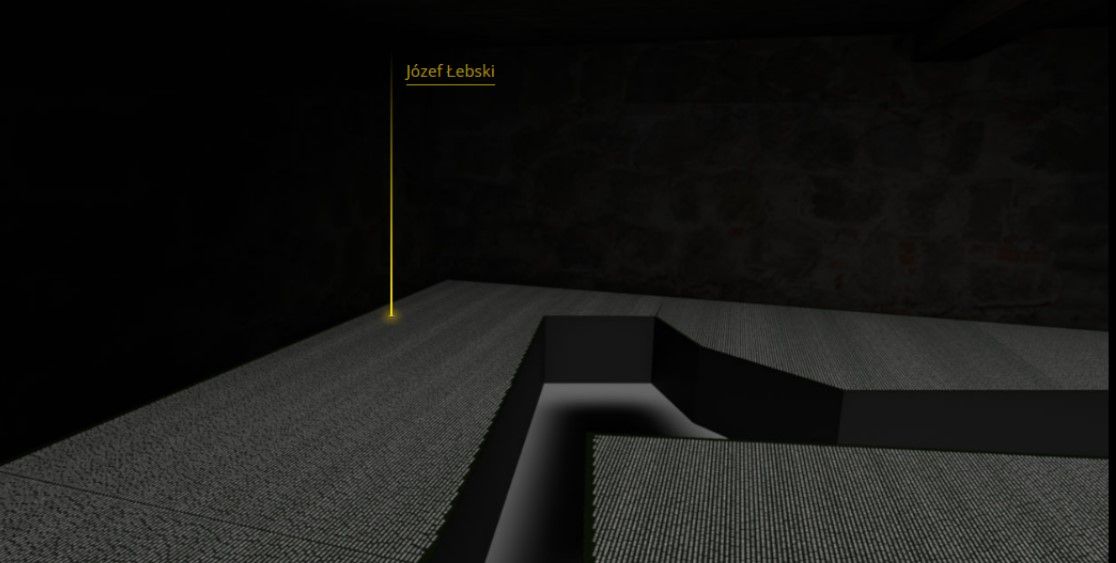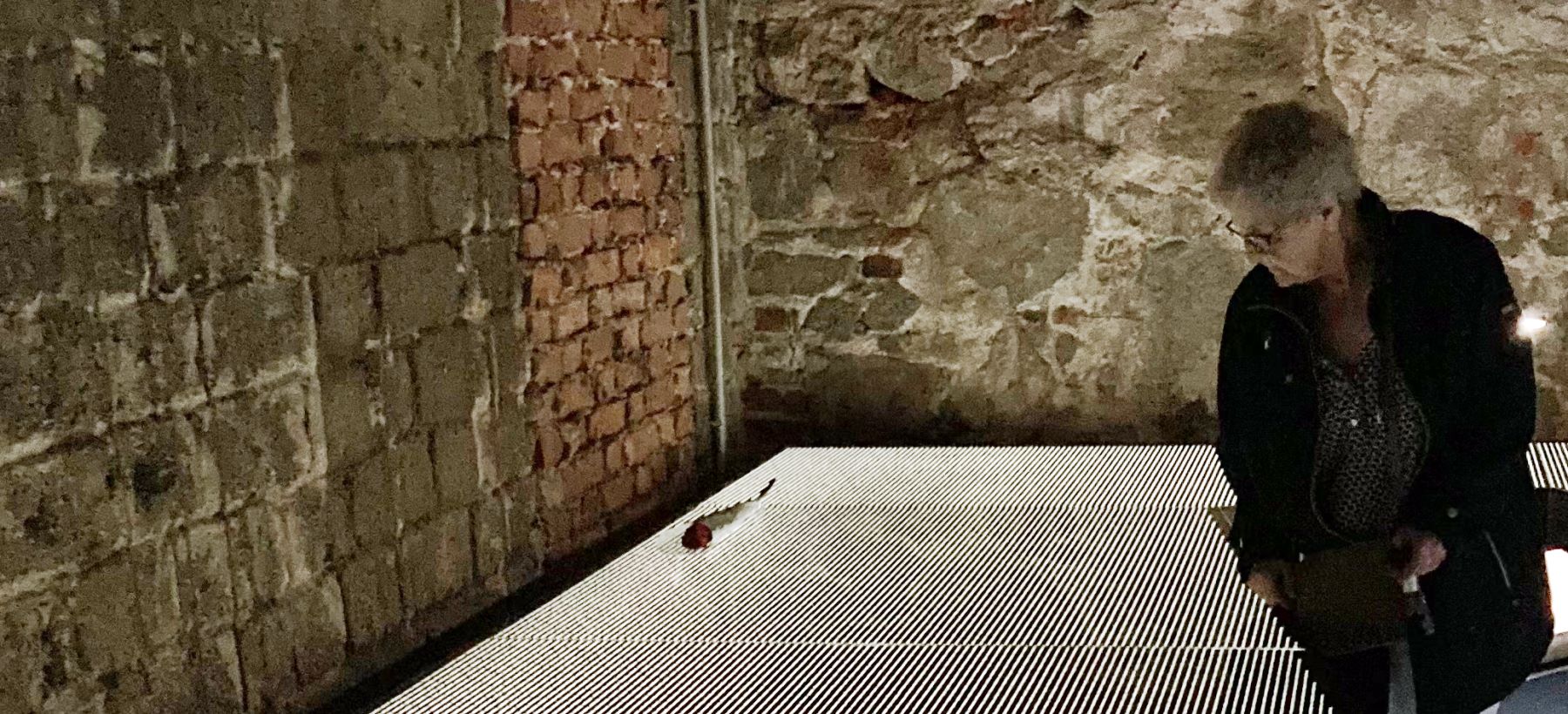Józef Łebski and his story
Born on March 19, 1904, in Ligota (formerly Breckenfeld), Poland, Died in May 1945 in Mauthausen Concentration Camp
When you visit this site as an outsider, the dead whisper the horror into your ear. They are still here, and their silence for over 80 years sounds like a groan in your ears. You stand among survivors who sometimes doubt whether it was good to stay, because today’s perpetrators are already thinking about tomorrow and heap brown mockery onto the death of the silent ones. That is why you must repeatedly hear from the dead how it was back then, over and over again, so that you do not forget anyone or anything, and maybe they can forget a little, at least a little. Tears alone are not enough.
Letter from Józef Łebski from Auschwitz Concentration Camp
On December 3, 1944, the only surviving letter written by Józef Łebski from the Auschwitz concentration camp to his wife, Weronika Łebska, was sent. For 78 years, this letter was the only proof that Józef Łebski was still alive in December 1944. Despite years of efforts, Weronika Łebska was unable to determine the exact circumstances of her husband’s death. She passed away in 1982, convinced that her husband was murdered in Auschwitz.
However, thanks to digitized documents available in the Arolsen Archives (https://arolsen-archives.org/), the last days of Józef Łebski’s life have been reconstructed, and the location of his death has been established. These materials shed new light on the fates of Auschwitz victims and help enrich our knowledge about the tragic events of that time.
Email to:
Memorial Mauthausen Concentration Camp / Information on former prisoners of the concentration camp
Dear Sir/Madam,
My name is (…) and I am writing on behalf of my mother, Anna (…) (née Łebska). This concerns her father, my grandfather, Józef Łebski, who was born on March 19, 1904, in Ligota (formerly Breckenfeld), Poland.
He was arrested on October 17, 1943, during work with his brother Michał by the Gestapo and transported to the police prison at Robert-Koch-Strasse 16 in Łódź (Litzmannstadt). Prisoners were detained there by the Gestapo for sabotage, political activity, fighting for independence, or affiliation with the Polish resistance movement. From this period, there are two postcards that he sent to his wife, Weronika (one dated October 31, 1943, and the other from December 17, 1943).
On December 22/23, 1943, he was deported from Litzmannstadt (Łódź) to Auschwitz. The last sign of life was his letter from December 3, 1944, which he wrote to his wife Weronika (whom he affectionately called “Wercia”) from the Auschwitz concentration camp. After that time, there is no information about his further fate. My grandmother, who tried to locate him after the war (through the Red Cross), passed away in 1982, not knowing where and how her husband died.
Recently, I found digitized documents in the “Arolsen Archives Online” that shed some light on my grandfather’s last days. The documents indicate that he was deported from Auschwitz to Mauthausen on December 4/5, 1944. My further research revealed that he died in Mauthausen in 1945. I found this information on the “Raum der Namen” portal.
My questions are as follows: On the “Raum der Namen” portal, the name Józef Łebski is incorrectly recorded as “Łębski,” and his place of birth is incorrectly listed as Brückenfeld when it should be Breckenfeld, which in Polish refers to Ligota. Could you please make these corrections? Do you have any additional information about the date of death of Józef Łebski or any other details related to him?
Thank you in advance for your help and any information.
Kind regards,
Przemek Zajfert and Anna (…)
Wednesday, February 15, 2023, 5:34 PM
Dear Mr. (…),
Please find attached a query from the prisoner database of the Mauthausen Memorial Archive providing information about Jozef Lebski. Additionally, we are sending you a scan of the Political Department’s prisoner admission book (Sign. MM/Y36b) and a scan of the prisoner personnel file (MM/2/2/7/1), which indicates that Mr. Lebski was admitted to the Mauthausen concentration camp on December 6, 1944, coming from Auschwitz. He was then transferred to the Floridsdorf subcamp and later back to the main camp at Mauthausen. Jozef Lebski died a few days after the liberation, but unfortunately, we could not find exact dates. The name and birthplace will be corrected in the Room of Names. Thank you for bringing this to our attention.
We apologize for the delayed response, which is due to the large number of inquiries received by the archive.
Best regards,
Collection – Library | Collection – Library
Argentinierstraße 13, TOP 103+104
A-1040 Wien | Vienna
Tel: +43 1 376 3000-112
memorial.org
www.mauthausen-memorial.org
3.3.2023 17:09
On December 22/23, 1943, Józef Łebski was deported from the police prison located at Robert-Koch-Strasse 16, Litzmannstadt (Łódź) to the Auschwitz-Birkenau concentration camp.
(Ramp admission photo from the Auschwitz concentration camp taken in 1945 by Stanisław Mucha)
Mauthausen SS utworzyło w 1944 r. na terenie browaru i winiarni w Jedlesee oraz na terenie firmy Hofherr-Schrantz we Floridsdorfie dwa obozy satelickie obozu koncentracyjnego Mauthausen. Powstały one w lipcu 1944 r. po zniszczeniu obozów Schwechat I i Schwechat II w wyniku nalotu bombowego. W związku z postępem Armii Czerwonej 1 kwietnia 1945 r. wysłano w marszu ewakuacyjnym do Mauthausen łącznie 2710 więźniów, podczas którego mordowano więźniów przed i w trakcie marszu.
(wikipedia.org)
The Hofherr & Schrantz and AFA commandos, as well as the Jedlesee commando, were evacuated on April 1, 1945, indicating that the evacuation was not likely carried out via the Hinterbrühl subcamp. The evacuation march, which passed through the Steyr subcamp, reached the Mauthausen concentration camp on April 11, 1945. According to a record from the camp’s administration office, a total of 121 prisoners were killed during this march, while 22 remained missing or had escaped. The number of deaths in the Floridsdorf subcamp alone is estimated to have been 45 prisoners
https://www.mauthausen-guides.at
On May 3, 1945, the last SS members fled from the Mauthausen and Gusen camps. On May 5, a reconnaissance unit of the US Army arrived in Gusen and Mauthausen, and the following day, units of the 3rd US Army finally liberated around 40,000 prisoners from these camps. In both places, they found hundreds of corpses of concentration camp prisoners who had died in the days before liberation. Thousands were so weakened and medically compromised that, despite medical care provided by US Army medical units, they continued to die in the weeks and months after liberation. More than 3,000 dead were buried in the “Camp Cemeteries” next to the former concentration camps. (mauthausen-memorial.org)
Digital Memorial Book for the Dead of the Mauthausen Concentration Camp and its Subcamps, 1938–1945.
In April 2023, after 78 years, Anna, the daughter of Józef Łebski, visited the Mauthausen concentration camp to pay tribute to her father and all the victims of this brutal place. During her visit, she laid flowers at the site where her father, a prisoner of the camp, lost his life. This special and moving event was a symbolic act of remembrance, aimed at honoring his life and the lives of all those who perished in Mauthausen.
Anna Łebska, after years of searching and discoveries related to her father’s tragic fate, wanted to stand personally at the place where his journey ended. This trip also held deep emotional significance for Anna, who, after the death of her mother, had spent many years trying to find out exactly what had happened to her father. The laying of flowers in Mauthausen became a kind of closure to a difficult chapter in the family history, while emphasizing how important it is to remember the victims of the Holocaust and ensure that their fates are not forgotten.
Józef Łebski
Born on March 19, 1904, in Ligota (formerly Breckenfeld), Poland
Died in May 1945 in Mauthausen
My father, Józef Łebski, was born on March 19, 1904, in Ligota (formerly Breckenfeld), Poland. He was a locksmith by profession. On January 18, 1930, he married Weronika Adamska. Before the wedding, in 1929, they moved to Ostrzeszów (formerly Schildberg). I remember that on his days off, he would take me and my brother to the countryside to visit my mother’s family.
Until his arrest, he worked in a brick factory in Ostrzeszów (Schildberg). On October 17, 1943, he was arrested by the Gestapo during work, together with his brother Michał, and taken to the police prison at Robert-Koch-Strasse 16 in Łódź (Litzmannstadt). Prisoners were detained there by the Gestapo for sabotage, political activities, fighting for independence, or affiliation with the Polish resistance movement. Most of them were deported to concentration camps or high-security prisons after the investigations were completed. Many prisoners were executed. From this time, there are two postcards he sent to my mother, Weronika (one from October 31, 1943, and the other from December 17, 1943).
On December 22/23, 1943, he was deported from Łódź (Litzmannstadt) to Auschwitz. The last sign of life was a letter he wrote on December 3, 1944, from Auschwitz concentration camp to my mother Weronika (whom he affectionately called “Wercia”). After that time, there was no further trace of him.
The search efforts carried out by my mother after the war were unsuccessful. My mother passed away in 1982, not knowing where or how her husband, Józef, had died. Only recently, my son found digitized documents in the “Arolsen Archives Online” that shed some light on the last days of my father. According to these documents, he was deported from Auschwitz to Mauthausen on December 4/5, 1944. He was then transferred to the subcamp in Floridsdorf. He probably stayed there until April 1, 1945. Due to the advance of the Red Army, on April 1, 1945, a total of 2,710 prisoners were sent on an evacuation march to Mauthausen, during which many were murdered before and during the march. The evacuation march, which passed through the subcamp in Steyr, reached the main Mauthausen camp on April 11, 1945. According to the camp administration’s list, 121 prisoners were killed on this march, and 22 went missing or escaped.
Józef Łebski died a few days after the liberation of the camp. Unfortunately, there is no exact information about the circumstances of his death. He was probably so exhausted and in such poor health that despite medical care from the sanitary units of the US Army, he passed away.
Although I was very young at the time, I remember my father as a very kind man who always had time for his family.
Anna Zajfert (née Łebska), daughter of Józef Łebski
